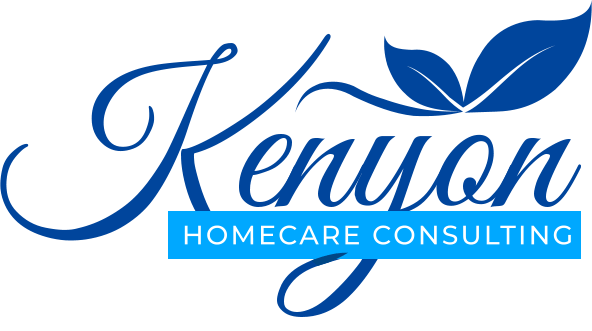Retention Revolution: Building Rewarding Paths for Home Health/ Home Care Aides
The homecare and home health aide field is a rapidly growing area of healthcare, offering a rewarding entry point for those passionate about helping others. While often seen as an entry-level position, a job as an aide can be the first step on a dynamic and flexible career path. By focusing on continued education, specialization, and strategic planning, agencies can help aides advance into higher paying, more responsible roles within the agency. The foundation of career paths is one of the building blocks for retention. ALL AGENCIES THAT WANT A STRONG RETENTION PROGRAM MUST HAVE DEDICATED CAREER DEVELOPMENT PROGRAMS IN PLACE.
THE FOUNDATIONAL ROLE OF A HOME HEALTH AIDE
A home health aide (HHA) provides essential, personalized care to clients in their homes, helping them maintain their independence and well-being. Responsibilities typically include:
- Assisting with personal care, such as bathing and dressing.
- Helping with mobility and transfers.
- Performing light housekeeping and preparing meals.
- Monitoring vital signs and client conditions.
- Providing emotional support and companionship.
The valuable experience gained as an HHA provides a strong foundation for exploring other opportunities within the medical field.
MAPPING A CAREER TRAJECTORY FOR AN AIDE
A career path for a homecare or home health aide doesn't have to be a rigid ladder. Instead, it can be a "lattice," with many different directions for growth. The career path for each aide should be developed at orientation and followed with every yearly evaluation as to advancement on career goals and success.
COMMON CAREER LADDER PROGRESSION
Career paths, as noted above can be a specialty or traditional. The most traditional pathway involves moving through increasingly complex nursing roles:
- Certified Nursing Assistant (CNA): This is a natural next step for many HHAs. With additional, state-approved training and a certification exam, CNAs can work in a wider range of settings. These include hospitals and nursing homes, and have a broader scope of responsibilities.
- Licensed Practical Nurse (LPN): An LPN provides more direct medical care than a CNA and performs basic nursing tasks under the supervision of doctors and registered nurses. This requires completing a twelve to 18 month LPN training program.
- Registered Nurse (RN): Becoming an RN offers the highest level of direct care, with opportunities to specialize and take on advanced practice or leadership roles. This requires a two to four year nursing degree and passing a national licensure exam.
SPECIALIZATION AND UPSKILLING
For aides who prefer to stay in direct care but want to deepen their expertise, specialization is an excellent option.
- Specialty certifications: Additional training in areas like dementia, palliative care, or chronic disease management can significantly increase an aide's skills and earning potential. Additionally, many states now offer CNAs advanced training to become med-techs.
- Micro-credentials: Some agencies offer smaller, condition-specific credentials that allow aides to develop expertise in focused areas, such as behavioral health, diabetes, CHF COPD etc.
MOVING INTO ADMINISTRATION
Experienced caregivers with strong organizational and communication skills can transition into administrative roles.
- Care Coordinator or Case Manager: These roles involve managing client cases, coordinating services, and ensuring care plans are followed. This may require further education in healthcare administration or social work.
- Staffing Coordinator: This position focuses on the day-to-day operations of managing and retaining caregiving staff.
- Caregiver Trainer or Mentor: Aides who enjoy sharing their knowledge can move into a role that trains new caregivers on topics like communication skills and specialized care.
ESSENTIAL STRATEGIES FOR CAREER ADVANCEMENT
No matter the path, several key strategies can help an aide achieve their career goals. This should be part of the yearly evaluation where opportunities are made clear to the aides and help plan for future achievement and growth.
- Establish a formal career paths program: Provide employees with clear career advancement pathways available to them.
- Provide continued education: Pursue certifications, online courses, and workshops to help staff stay current on best practices. Community colleges offer programs for caregivers to expand their skills and may be a partner for an agency to help build career paths for all staff.
- Help the aide build a professional network: This allows the aide to build relationships with colleagues, attend industry events, and join professional organizations. Strong relationships can provide mentorship and open doors to new opportunities.
- Provide the opportunity to gain diverse experiences: Provide staff with different patient populations, such as pediatric or geriatric care, maternity or doula training that help build advanced knowledge and skills. This diversification creates a more robust skill set for the aides and the agency.
- Provide a mentor: Provide guidance from more experienced aides or healthcare professionals. Their insights can be invaluable for navigating the career journey.
- Become a mentor: Provide experiences that will help an aide become a mentor
- The future of the field: The demand for home health and personal care aides is projected to grow significantly due to an aging population that prefers to receive care at home. This demand ensures a strong job outlook and creates numerous opportunities for professional growth. By providing advanced training, education, and specialization, your homecare and home health aides can turn a compassionate career into a fulfilling and dynamic lifelong profession.
Should you need help with recruitment/ retention of aide staff as well or education/training in disease management certification, call Kenyon Homecare Consulting at 206-721-5091 or contact Ginny Kenyon at gkenyon@kenyonhcc.com.
Results Based Consulting
Did you find value in this blog post? Imagine what we can do for your home care or hospice agency. Fill out the form below to see how we're leading the industry with innovation, affordability, and experience.
Contact Us










